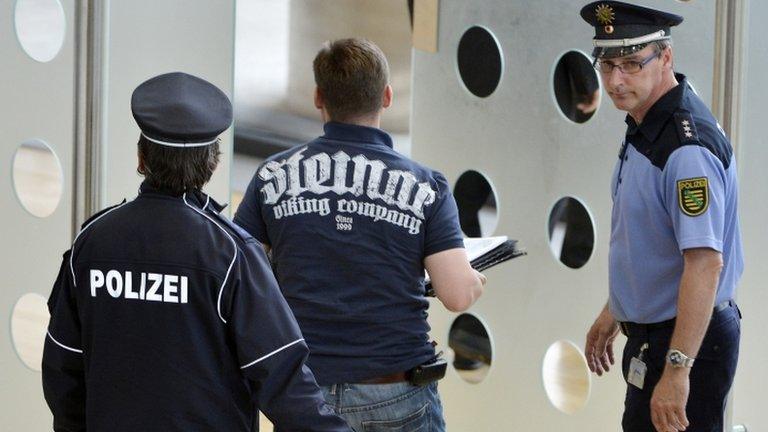German restaurant in Islamic veil row after woman expelled
- Published
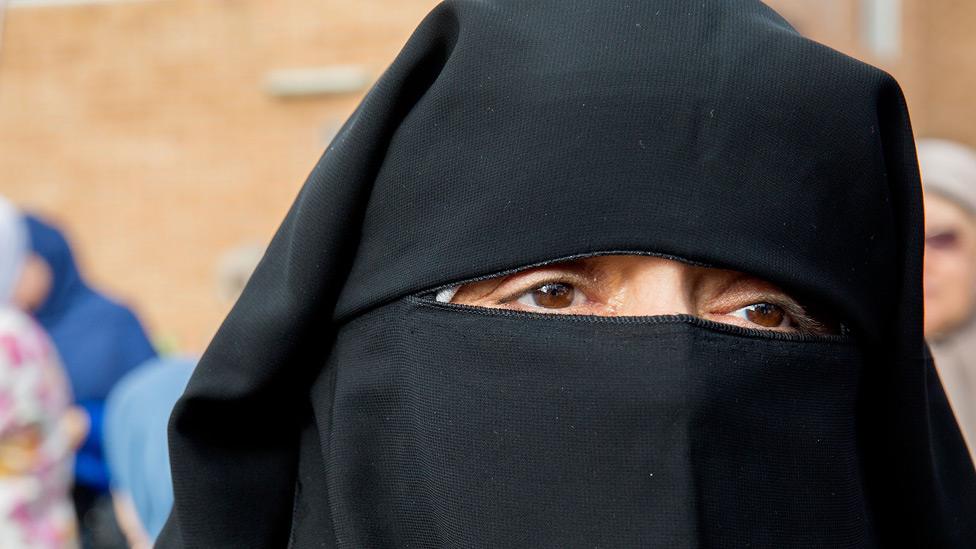
A niqab-wearer: The woman in Bielefeld refused to remove her veil in the restaurant
A restaurant manager in Bielefeld, northern Germany, triggered a social media storm after expelling a woman wearing the Islamic full-face veil (niqab) from his premises.
On Facebook, external, Christian Schulz said he had to defend his Seekrug restaurant against "negative judgments". So, he said, he had "deleted two of my posts with nearly 800 comments".
Currently the comments on his page are overwhelmingly supportive.
He strongly denies claims of "racism".
His Facebook page displays photos of him with a Seekrug chef who is apparently African. German media report that he employs staff from Nigeria, Ghana, Pakistan and Portugal.
Mr Schulz told local newspapers that in the past he had also expelled visitors wearing Thor Steinar clothing, which is popular among neo-Nazis.

On his Facebook page Christian Schulz poses with one of his chefs
In recent months Germans have been alarmed about terror attacks, some of them linked to Islamist extremism. The niqab and full-body veil (burka) are widely seen as symbols of ultra-conservative Islam.
The Seekrug serves alcoholic drinks and pork, which Muslims are forbidden by their religion to consume.
Integration of Muslims into German society has become a top priority since the nation took in more than a million migrants last year, many of them Muslim refugees from Syria, Iraq and Afghanistan.
Internet abuse
The niqab-wearer turned up on Saturday as hundreds of people were gathering at the Seekrug to celebrate a Festival of Light.
Mr Schulz said he had asked her to show her face, but she refused and "got abusive". She then left the restaurant.
After the incident, Mr Schulz was targeted with abuse and negative comments about the Seekrug on social media.
German media report that some of the abusive accounts were opened immediately after the incident, suggesting a coordinated campaign.
He later defended himself on Facebook, saying "this is all getting too much for me - on Saturday I merely enforced my right as a restaurant manager".
The many messages of support on his Facebook page include:
Gok Han: "I'm Turkish and my religion is Islam. But... to walk into a beer garden as a Muslim and fully veiled (Burka) - I'd also find that pretty weird! You shouldn't enter a social place where alcohol is being consumed! That's just not on"
Norbert Bochnick: "Good luck - don't let this put you out of business! And absolutely no-one can describe you as a racist. You've already shown your commitment to integration through your staff policy!"
Thomas Mueller: "In a time of Islamist terror it is really necessary to show spreading Islam the limits set by our secular society. Citizens admire you for your courage"
The veil dispute follows a similar controversy in France, centred on the Islamic burkini - a full-body swimsuit that was temporarily banned at some French resorts.
A small minority of Muslim women in France and Germany wear the full veil.
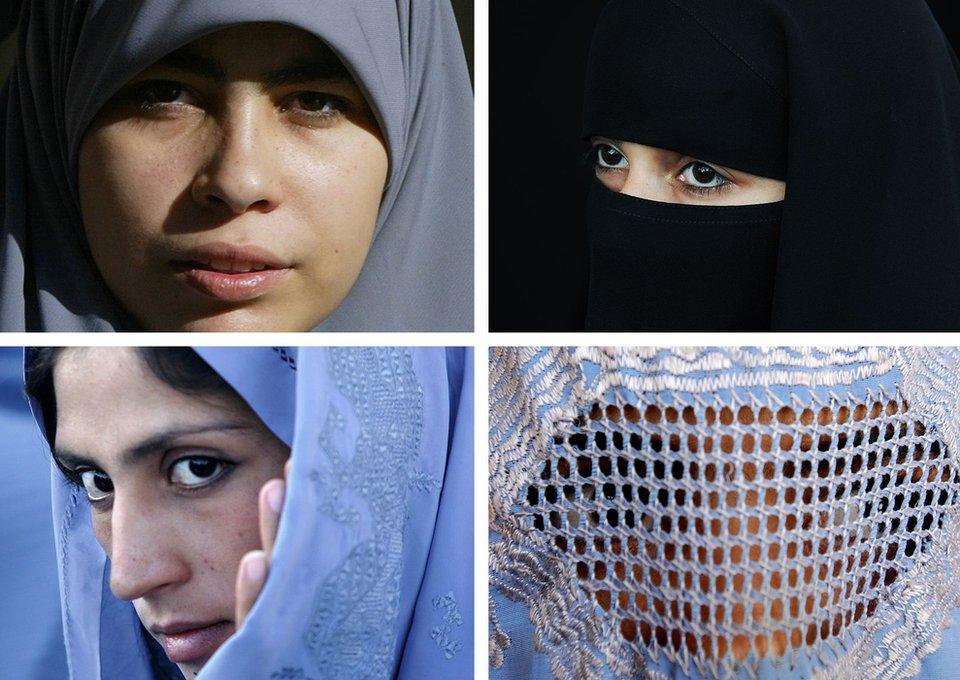
Some Muslim women wear the burka (bottom right), the niqab (top right), the chador (bottom left) or the hijab (top left)
What does German law say?
There is no Germany-wide ban on the niqab or burka but German states are allowed to impose regional restrictions if they want to.
At least half of the 16 states have banned teachers from wearing Islamic headscarves and in the state of Hesse the ban applies to all civil servants.
The conservative Bavarian Christian Social Union (CSU) - an ally of Chancellor Angela Merkel - wants the niqab and burka banned wherever possible. They are "the uniform of Islamism", according to CSU leader Horst Seehofer.
On Wednesday Mrs Merkel opposed a total ban on the full veil. She told an international conference that "one's choice of clothing is also an element of religious freedom".
But she said "the full veil is a big obstacle to integration". Restrictions are justified where other people's rights, or the secular foundations of society, are infringed, she argued. She called for clear guidelines in areas where the full veil might cause difficulties, such as in public sector jobs or in the courts.
In Germany a restaurant or bar manager can legally refuse entry to a guest, but not if it is an arbitrary act of discrimination.
A lawyer quoted by the popular daily Bild (in German), external said displaying "radical symbols" would be legitimate grounds for refusal. But the person involved should first be asked to remove that symbol - not summarily shown the door.
- Published28 August 2016
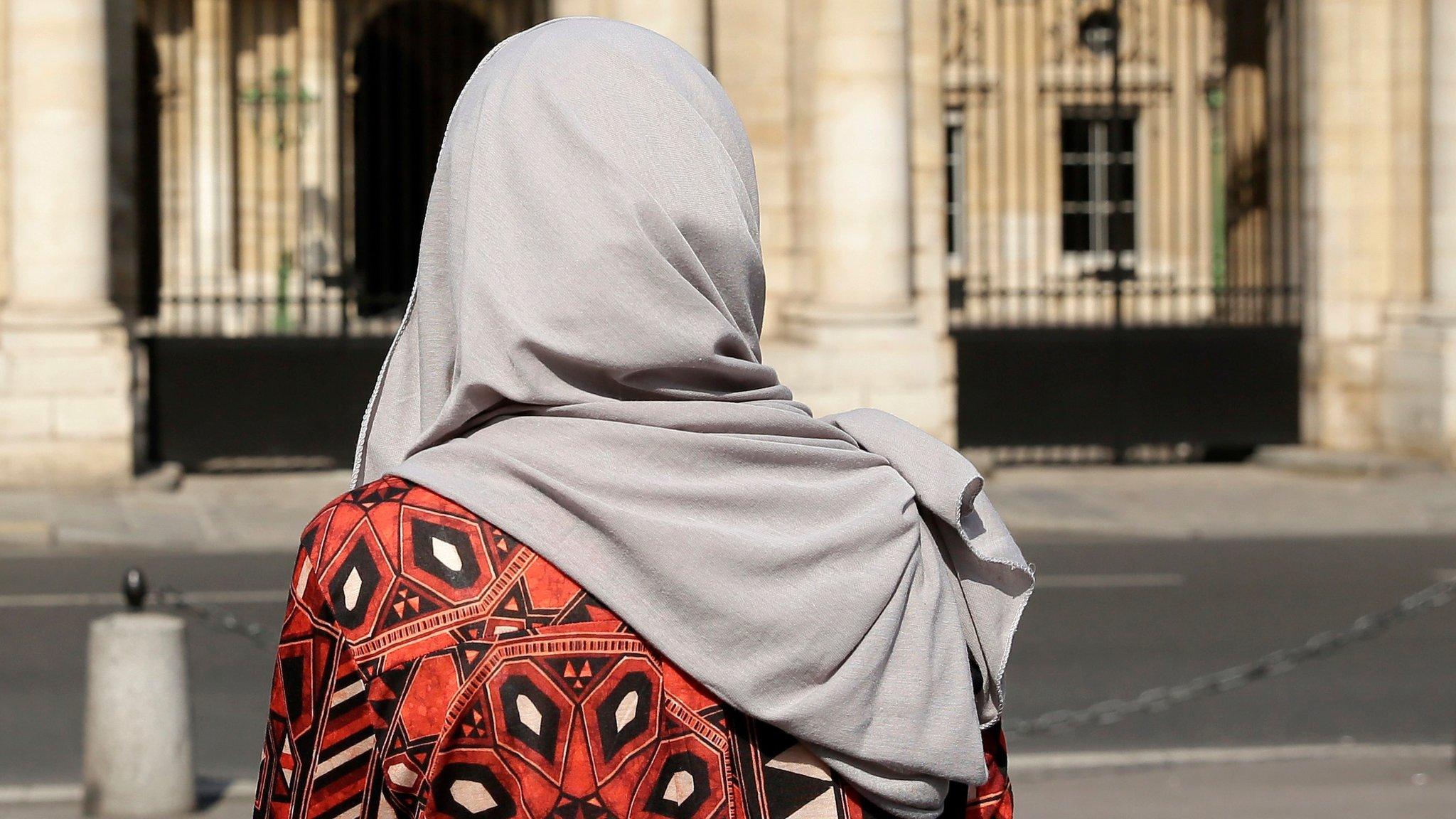
- Published20 August 2016
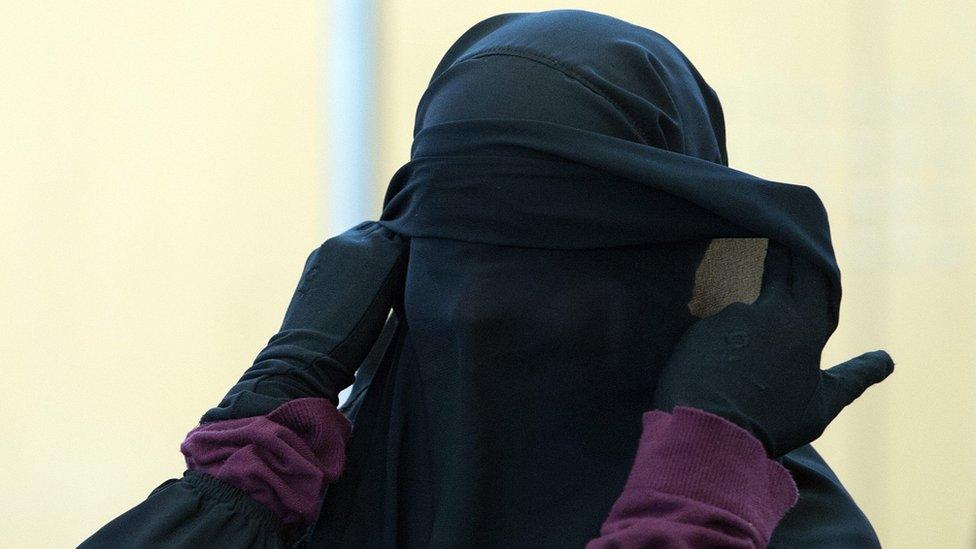
- Published31 May 2018
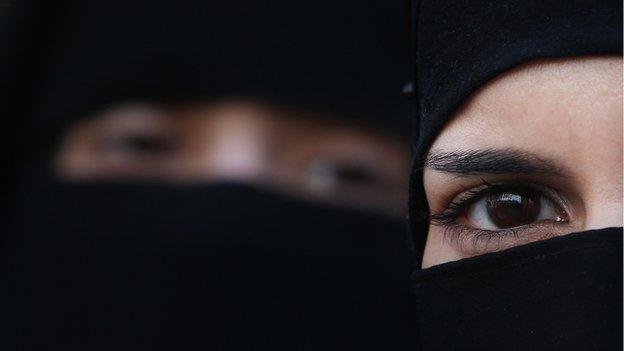
- Published13 June 2012
